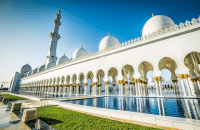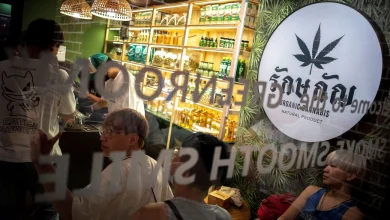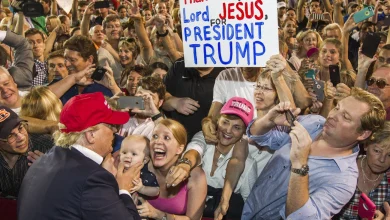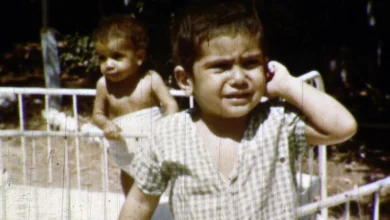
Embracing the Essence of Ramadan: The Impact on Lifestyle and Culture in the United Arab Emirates.
Ramadan is a holy month of fasting, prayer, and reflection for Muslims around the world. In the United Arab Emirates (UAE), Ramadan holds a special place in the hearts and minds of its people. This month-long observance not only has religious significance but also impacts the country’s culture and lifestyle. The UAE has a rich history with Ramadan dating back to its early days as a nation. It is believed that Islam was introduced to the region during this blessed month by Muslim traders from neighboring countries.
Ramadan holds great spiritual significance for Muslims as it is considered one of the five pillars of Islam. It commemorates when Allah (God) revealed the first verses of Quran to Prophet Muhammad (PBUH). Fasting during this month allows individuals to purify their mind, body, and soul through self-discipline, abstinence from worldly desires, and focusing on spirituality. In addition to its religious importance, Ramadan plays an important role in shaping Emirati culture. It brings communities together through shared traditions, values such as generosity and compassion towards others are emphasized during this time.
During this auspicious month, many traditional rituals are observed throughout the UAE. These include increased attendance at mosques for prayers, recitation of Quranic verses daily after prayers known as Tarawih prayers; families gathering for communal meals known as Iftar; decorating homes with lights; exchanging gifts; visiting friends and neighbors; giving charity to those less fortunate; among other practices that vary across different regions within the country.
Meaning and Significance of Ramadan in the UAE
Ramadan is a time of reflection and spiritual growth for Muslims all over the world. In the UAE, this month holds even more significance as it is deeply embedded in the country’s culture and traditions. The UAE government recognizes Ramadan as an important part of its national identity and has taken steps to promote its observance throughout the country.
The importance of Ramadan in Emirati culture can be seen in various ways. One such example is through the decoration of homes with lights, lanterns, and colorful fabrics during this month. These decorations not only add to the festive atmosphere but also serve as a reminder of the holy month for everyone who sees them.
Another significant aspect of Ramadan in UAE culture is Iftar gatherings. Families come together every evening to break their fast at sunset with a communal meal which often includes traditional dishes such as dates, samosas, falafel, among others. This practice fosters a sense of community spirit and strengthens family bonds.
Charity or Zakat plays an important role during Ramadan in both religious teachings and cultural practices in the UAE. Giving back to society through acts of kindness and generosity towards those less fortunate is highly encouraged during this month. Many charitable organizations organize iftar meals for those who cannot afford it or distribute food packages to low-income families.
In addition to fasting from dawn till dusk, there are other rules associated with observing fasts during Ramadan such as refraining from negative thoughts or actions and striving towards self-improvement. It is believed that by practicing self-restraint during this month, individuals can develop qualities like patience, empathy, gratitude which carry on beyond just one month but become ingrained values within society.
Ramadan holds great meaning and significance not only for Muslims but also for Emiratis in particular due to its impact on their culture and way of life. Through fasting, prayer, and acts of charity – individuals strive towards spiritual growth while strengthening familial ties, bolstering community spirit, and promoting a sense of unity within the UAE.
Cultural Celebrations during Ramadan
During Ramadan, the entire UAE transforms into a festive and vibrant atmosphere. The streets are adorned with colorful lights and decorations, creating a magical ambiance. Families often gather in public spaces or at home to break their fast together. This communal meal is known as Iftar, where traditional dishes like biryani, harees, and luqaimat are enjoyed.
Aside from Iftar gatherings, there are also cultural events held throughout the month to celebrate Ramadan. These include performances of traditional Emirati music and dance forms such as Ayala and Liwa; exhibitions showcasing local handicrafts; storytelling sessions that depict historical events related to Islam; among others.
The impact of Ramadan on the cultural mood of the country can also be seen through its influence on businesses. Many shops extend their opening hours during this month to accommodate shoppers after Tarawih prayers at night. Special sales and discounts are also offered by retailers during this time.
Furthermore, schools in the UAE adjust their schedules during Ramadan to allow students to observe fasting without hindering their studies. Non-Muslims living in the country also show respect for those observing fasts by refraining from eating or drinking publicly during daylight hours.
Ramadan holds great significance in both religious beliefs and cultural practices within the UAE. It brings people together, promotes values of generosity, self-discipline, and community spirit while strengthening familial ties. Through its various rituals, cultural celebrations, and emphasis on charity, this holy month plays an important role in shaping Emirati culture while fostering unity among its people.
Fasting and Charity in Ramadan
Observing fasting during Ramadan is a fundamental aspect of this holy month for Muslims around the world. In the UAE, fasting begins at dawn and ends at sunset, with individuals abstaining from consuming food, drinks, and engaging in other pleasures during daylight hours. This practice not only strengthens one’s faith but also serves as a reminder to be grateful for the blessings in life.
In addition to fasting, charity or Zakat is also greatly emphasized during Ramadan. It is considered a duty for those who are able to give back to society through acts of kindness and generosity towards those less fortunate. The UAE government encourages its citizens and residents to participate in various charitable activities such as donating money or volunteering time to help those in need.
The spirit of giving and charity during Ramadan can be seen throughout the country. Many mosques organize iftar meals for anyone who wants to partake regardless of their religion or nationality, promoting inclusivity and fostering a sense of community among people from different backgrounds.
Many businesses take part in charitable initiatives during this month by donating a percentage of their profits towards helping the needy or sponsoring events that benefit local communities. This not only promotes goodwill within society but also highlights the importance of giving back in Islam.
Individuals often engage in personal acts of charity such as providing free meals (known as Suhoor) before sunrise for others who may have difficulty affording it themselves or offering food packages (known as Iftar kits) containing essential items like rice, oil, and sugar, to low-income families.
Overall, Ramadan instills values like compassion, tolerance, and empathy among individuals while encouraging them to actively contribute towards making society better. Not only does it serve as an important spiritual practice, but it also plays an integral role in shaping Emirati culture by promoting unity, giving back, and strengthening bonds between people. This spirit of giving extends beyond just one month but becomes ingrained within individuals, society, and ultimately, the nation itself.
Iftar and Suhoor Traditions
The traditional meals of Iftar and Suhoor are an integral part of Ramadan in the UAE. These meals hold great significance not only in terms of nourishment but also as a means of bringing people together.
Iftar, which translates to “breakfast”, is the meal that Muslims consume at sunset to end their fast for the day. This meal typically starts with dates and water, followed by a variety of dishes ranging from soups, salads, main courses, and desserts. Many families prepare these dishes at home while others opt for ready-made iftar boxes or dine out at restaurants.
Suhoor, on the other hand, is consumed before dawn and marks the beginning of another day’s fast. It is recommended to have a hearty suhoor meal as it provides sustenance throughout the day until sunset. Traditional foods like porridge (known as harees), boiled eggs with bread (known as balaleet), and yogurt-based drinks (known as laban) are commonly consumed during this pre-dawn meal.
Both Iftar and Suhoor hold immense importance during Ramadan in UAE culture. They serve not just nutritional purposes, but also act as reminders for individuals to be grateful for their blessings and empathize with those who may not have access to such meals regularly.
Iftar gatherings provide an opportunity for families, friends, and neighbors to come together after a long day, to break their fast together. This communal dining experience promotes unity within society regardless of one’s social status or background. It encourages individuals to bond over shared traditions, dishes, and conversations, making it a time-honored practice that brings people closer.
Similarly, Suhoor allows individuals to start their fasting journey each day on a positive note by sharing this early morning meal with loved ones. Through these traditional meals, Ramadan fosters relationships between people, nurturing values like family ties, social cohesion, and solidarity among members within communities.
The traditions surrounding Iftar and Suhoor play a vital role in shaping the cultural landscape of Ramadan.
Ramadan Events and Activities in the UAE
During the holy month of Ramadan, the UAE comes alive with festivals, markets, and gatherings that celebrate the spirit of this special time. These events not only add to the festive atmosphere but also play a significant role in promoting Emirati culture and traditions.
One such event is the Ramadan Night Market, held annually at Dubai World Trade Center. This market features over 400 vendors selling everything from traditional clothing and accessories to handicrafts and home decor items. It also offers a variety of delicious food options for visitors to enjoy during iftar or suhoor. The market attracts both locals and tourists alike, providing an opportunity for cultural exchange and showcasing Emirati hospitality.
Another popular event during Ramadan is the Global Village in Dubai. The village transforms into a bustling hub of activities during this time with stalls offering traditional foods from various cuisines around the world, making it an ideal place for individuals to break their fast while experiencing different cultures. This multicultural celebration promotes unity among people by highlighting similarities between diverse communities.
Ramadan tents are another common sight throughout the country during this month. These temporary structures are erected in public spaces where individuals can gather for iftar meals or attend religious lectures, promoting community spirit while fostering spiritual growth. Many government organizations, such as hospitals, and private businesses also set up these tents, to offer free iftar meals to those who may not have access otherwise, further emphasizing values like generosity, charity, and inclusivity within society.
Various cultural exhibitions are organized across different emirates in UAE, during Ramadan. These exhibitions showcase traditional Emirati arts, clothing, jewelry, and other handicrafts. Guests can learn about local customs, take part in interactive workshops or watch live demonstrations, giving them a deeper understanding of Emirati culture. Families can spend quality time together, enjoying these activities while learning more about their heritage.
Ramadan events and activities contribute greatly towards creating a festive ambiance in the UAE. These events not only promote cultural exchange, but also foster values like
Eid al-Fitr Celebrations
Eid al-Fitr, also known as the “Festival of Breaking the Fast”, marks the end of Ramadan and is one of the most important holidays in Islam. This joyous occasion celebrates the completion of a month-long spiritual journey and is a time for Muslims to come together with family and friends to celebrate.
One of the most significant cultural customs during Eid al-Fitr is attending prayers at the mosque. After completing their morning prayers, families gather to exchange gifts and greetings, often wearing new clothes or traditional attire. This tradition symbolizes unity among Muslims and reflects oneness in diversity within society.
Another common practice during this holiday is giving out sweets or treats as gifts, especially to children. These sweet treats are often prepared at home or bought from local markets, and they add an element of excitement and joy to Eid celebrations.
Decorating homes with lights, lanterns, and other festive decorations is also customary during Eid al-Fitr. Streets are adorned with colorful lights, and houses are decorated with intricate designs made from paper, cloth, or even flowers. This adds to the celebratory atmosphere throughout communities, demonstrating unity while highlighting Emirati creativity and artistry.
Eid al-Fitr feasts are an essential part of celebrating this holiday. In many households, families prepare large amounts of food for relatives, friends, and neighbors who visit their homes. The feast usually consists of traditional dishes like lamb, poultry, rice, salads, and various desserts. Food plays an integral role in bringing people together, demonstrating generosity towards others, respecting cultural traditions, and reinforcing social bonds across different communities.
In addition, the spirit of charity continues during Eid al-Fitr through Zakat-ul-fitr which requires individuals who have completed fasting, to donate money or goods equivalent to feeding one person for a day. These donations go towards helping those less fortunate enjoy a proper meal on this special occasion. This act not only fulfills religious obligations but also promotes kindness, empathy, and compassion within society.
Ramadan and the Spirit of Unity and Generosity
The month of Ramadan also encourages individuals to reflect on their actions and strive towards self-improvement. This introspection leads to a greater sense of empathy and understanding towards others, fostering unity within the community. The act of fasting itself promotes equality as everyone, regardless of their social status or wealth, partakes in this spiritual practice together.
Ramadan brings people from different backgrounds closer through acts of charity and generosity. Many organizations in the UAE launch initiatives during this month to provide aid and support to those in need. This includes organizing food drives, donating clothes, and offering free medical services. These efforts not only help those who are struggling but also bring diverse communities together for a common cause, fostering a sense of solidarity.
Moreover, Ramadan traditions like Taraweeh prayers at mosques create opportunities for individuals from all walks of life to come together and worship side by side. This further strengthens bonds among members within society while promoting mutual respect and understanding across different cultures.
In addition, the spirit of giving is encouraged throughout Ramadan with an emphasis on sharing meals with neighbors, friends, and even strangers. The concept that “the more you give, the more you receive” is deeply rooted in Emirati culture. During Iftar gatherings, it’s common for guests to bring dishes or desserts, to contribute towards the meal. In doing so, this tradition highlights values like hospitality, charity, and kindness, creating an atmosphere where everyone feels welcomed, taken care off, and included.
Overall, Ramadan plays a pivotal role in shaping the cultural landscape of the UAE. Its emphasis on unity, solidarity, charity, and generosity not only brings people closer but also contributes towards creating a harmonious society. With its diverse population, the country stands as an example that celebrates differences, promotes inclusivity, and fosters relationships based on mutual respect, making it truly unique.
Ramadan is a deeply significant and cherished time in the UAE. It not only holds religious importance for Muslims but also plays a critical role in shaping the cultural identity of the country. The month-long observance of fasting, along with its associated traditions and customs, brings people from all walks of life together, promoting unity and solidarity among diverse communities.
Ramadan serves as a reminder to individuals to be mindful of their actions and strive towards self-improvement. This introspection leads to greater empathy and understanding towards others, fostering an inclusive society where differences are celebrated rather than shunned.
The festive atmosphere during this time adds vibrancy to the country’s cultural landscape. The various events, festivals, and gatherings held throughout the month highlight Emirati hospitality, cuisine, and traditional arts. Hundreds of thousands of visitors flock to Dubai every year during this period, to experience these unique celebrations, making it one of the most popular tourist destinations during Ramadan.
Ramadan instills important values like generosity, charity, and compassion within society. These values extend beyond just practicing them during this holy month, but become ingrained in people’s everyday lives. This further contributes towards making UAE a welcoming place for both locals and expatriates alike, a place that embraces diversity, promotes inclusivity, and celebrates unity.
Ramadan has a profound influence on shaping both the cultural fabric and festive mood in UAE. Its emphasis on fostering relationships based on mutual respect, inclusivity, and generosity makes it truly unique. With each passing year, this special occasion continues to bring people closer while promoting harmony within society. Ramadan is not just another holiday, but rather, a way of life that highlights what makes UAE stand out as a nation-a celebration that unites culture, tradition, solidarity, and faith.






